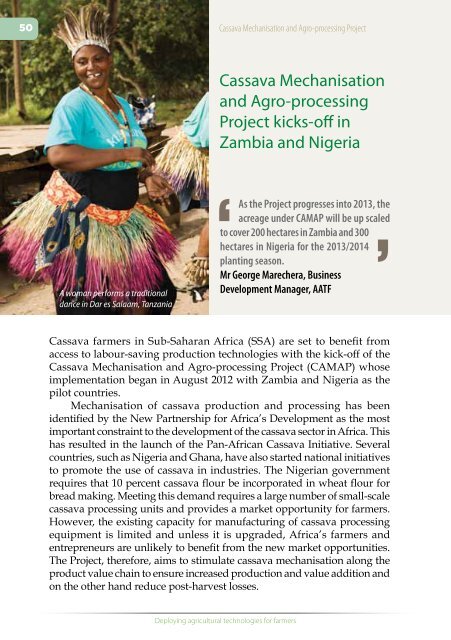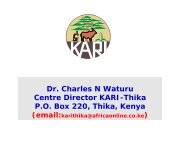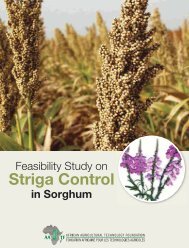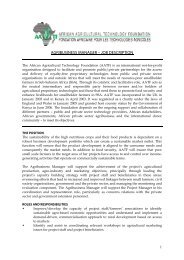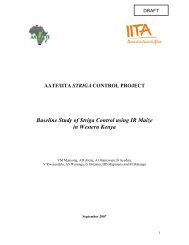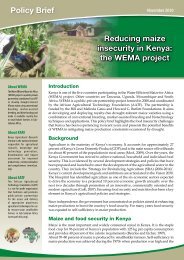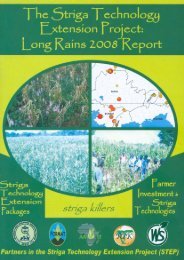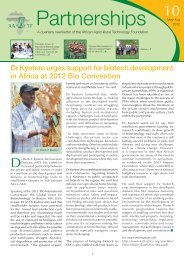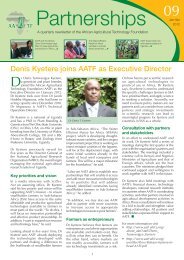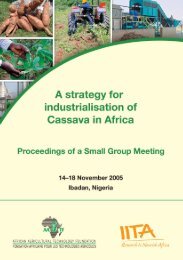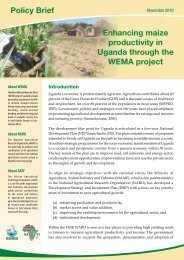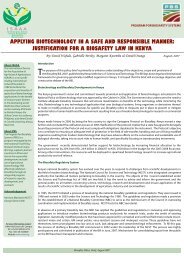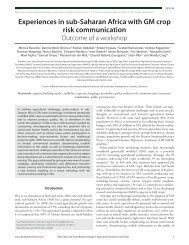Annual Report 2012 - African Agricultural Technology Foundation
Annual Report 2012 - African Agricultural Technology Foundation
Annual Report 2012 - African Agricultural Technology Foundation
You also want an ePaper? Increase the reach of your titles
YUMPU automatically turns print PDFs into web optimized ePapers that Google loves.
50 AATF <strong>Annual</strong> <strong>Report</strong> <strong>2012</strong><br />
Cassava Mechanisation and Agro-processing Project<br />
Cassava Mechanisation<br />
and Agro-processing<br />
Project kicks-off in<br />
Zambia and Nigeria<br />
A woman performs a traditional<br />
dance in Dar es Salaam, Tanzania<br />
As the Project progresses into 2013, the<br />
acreage under CAMAP will be up scaled<br />
to cover 200 hectares in Zambia and 300<br />
hectares in Nigeria for the 2013/2014<br />
planting season.<br />
Mr George Marechera, Business<br />
Development Manager, AATF<br />
Cassava farmers in Sub-Saharan Africa (SSA) are set to benefit from<br />
access to labour-saving production technologies with the kick-off of the<br />
Cassava Mechanisation and Agro-processing Project (CAMAP) whose<br />
implementation began in August <strong>2012</strong> with Zambia and Nigeria as the<br />
pilot countries.<br />
Mechanisation of cassava production and processing has been<br />
identified by the New Partnership for Africa’s Development as the most<br />
important constraint to the development of the cassava sector in Africa. This<br />
has resulted in the launch of the Pan-<strong>African</strong> Cassava Initiative. Several<br />
countries, such as Nigeria and Ghana, have also started national initiatives<br />
to promote the use of cassava in industries. The Nigerian government<br />
requires that 10 percent cassava flour be incorporated in wheat flour for<br />
bread making. Meeting this demand requires a large number of small-scale<br />
cassava processing units and provides a market opportunity for farmers.<br />
However, the existing capacity for manufacturing of cassava processing<br />
equipment is limited and unless it is upgraded, Africa’s farmers and<br />
entrepreneurs are unlikely to benefit from the new market opportunities.<br />
The Project, therefore, aims to stimulate cassava mechanisation along the<br />
product value chain to ensure increased production and value addition and<br />
on the other hand reduce post-harvest losses.<br />
Deploying agricultural technologies for farmers


